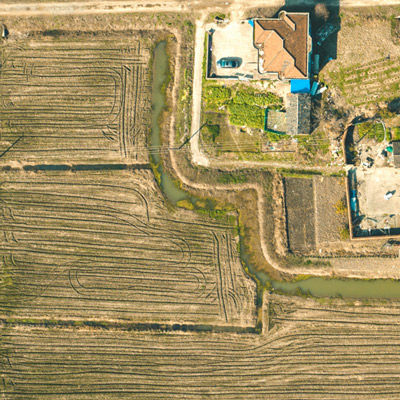Factors to Consider Before Buying Residential Land
Residential land in real estate refers to parcels of land that are designated for the construction of homes and residential buildings. This type of land is typically zoned specifically for residential use, meaning that it is intended for the development of single-family homes, multi-family units, or other types of housing.

Understanding residential land is crucial for anyone looking to invest in real estate, as it encompasses various factors that can significantly impact the value and usability of the property.
Types of Residential Land
There are several types of residential land, each with its own characteristics and potential uses.
Single-Family Residential Land
This type of land is intended for the development of individual homes. It usually has specific zoning regulations that dictate the size and type of home that can be built.
- Multi-Family Residential Land:
This land is designated for buildings that house multiple families, such as apartments or townhouses. The zoning laws for multi-family residential land are different and often allow for higher density housing.
- Mixed-Use Residential Land:
This type of land can accommodate both residential and commercial properties, allowing for a blend of housing and business opportunities. It is often found in urban areas where space is limited.
- Vacant Residential Land:
This refers to undeveloped land that is ready for construction. It may require additional infrastructure, such as roads and utilities, before it can be built upon.
Factors to Consider Before Buying Residential Land
Before purchasing residential land, there are several key factors to consider to ensure that the investment aligns with your goals and needs.
- Zoning Regulations
Understanding the zoning laws that apply to the land is essential. Zoning regulations dictate what types of structures can be built, the height of buildings, setbacks from property lines, and other critical aspects of development. Familiarizing yourself with these regulations can help prevent future legal issues and ensure that you can build the type of residence you envision.
- Location and Accessibility
The location of the residential land plays a significant role in its value and desirability. Consider factors such as proximity to schools, shopping centers, public transportation, and recreational facilities. Additionally, assess the accessibility of the land; is it easily reachable by major roads?
Accessibility can greatly impact the convenience of living in the area.
- Utilities and Infrastructure
Before purchasing land, it is vital to determine whether essential utilities such as water, electricity, sewage, and internet are available or need to be installed. The availability of these utilities can influence the overall cost of development and the timeline for construction.
- Environmental Considerations
Conducting an environmental assessment is crucial to identify any potential issues, such as flood zones, soil contamination, or protected wildlife habitats. Understanding the environmental conditions of the land can help you avoid costly surprises during the development process.
- Financing and Costs
Understanding the financial aspects of purchasing residential land is critical. This includes the purchase price, property taxes, and potential development costs. It is advisable to consult with a financial advisor or real estate expert to explore financing options and to create a budget that covers all potential expenses.
- Future Development Plans
Research any future development plans for the area surrounding the residential land. Upcoming infrastructure projects, commercial developments, or changes in zoning laws can impact property values and the overall living environment. Being aware of these plans can help you make an informed decision about your investment.
Market Trends Finally, analyze current market trends in the area where the residential land is located. Understanding the demand for residential properties, average home prices, and the overall economic outlook can provide insight into the potential appreciation of the land over time. In conclusion, purchasing residential land is a significant investment that requires careful consideration and thorough research.
By understanding the various aspects of residential land, including zoning regulations, location, utilities, environmental factors, financial implications, future developments, and market trends, prospective buyers can make informed decisions that align with their residential goals and aspirations.